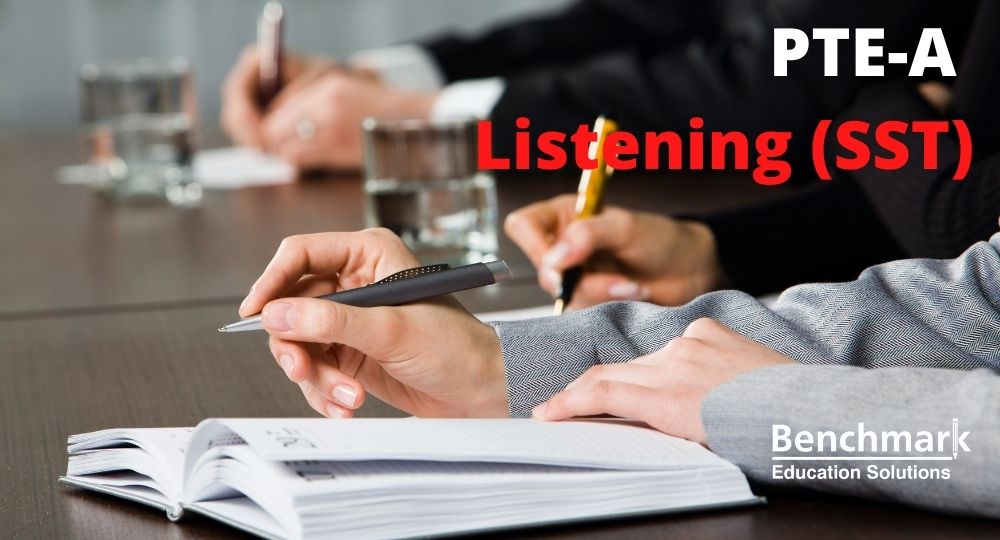PTE Listening Top 4 Tips For Summarize Spoken Text Task


There is a total of eight tasks for the PTE listening exam and the first of these that you will encounter is called the listening summarize spoken text. As its name suggests, this task requires you to listen and summarize a short passage, which can be a tricky skill to master.
In today’s PTE listening blog, I am going to explain how you can practice so that you are fully prepared to tackle the listening summarize spoken text part of the exam.
Understand the Purpose of Listening Summarize Spoken Text
First of all, it is essential that you understand why you are doing this task – and I don’t mean your personal reasons for doing it. Every part of every English test has some reason for it, and in this case the aim is to test whether the candidate is able to understand the main idea and some key details of a listening passage, before them summarizing it concisely.
What you fundamentally need to do is take a recording of a person’s voice that will last for between a minute and a minute and a half and then condense the ideas (without any loss of meaning) into a written passage of about fifty to seventy words.
This is important because it is a basic skill in learning any language. Being able to listen and comprehend speech is essential, and here you are also going to take notes and write a summary, which is useful for students or certain types of worker (like those who have to sit through meetings).
Know What to Expect from the Exam
For the summarize spoken text section of the PTE listening test, you will look at the computer screen and see the usual audio playback features but with a text field below it. This is where you need to write your summary.
You will sit and look at the screen for twelve seconds, before the recording automatically plays, lasting for about sixty to ninety seconds. Once it finishes, you will write your summary. Try to capture the main idea of what you have heard, along with some important details. Imagine that you are reporting the basics of this speech for a friend who could not hear it.
Some Clever Approaches to Summarizing Spoken Texts
As I mentioned, you might want to imagine that you are reporting the details of the speech for a friend. This is because you need to convey important ideas in your own words, and we often do this sort of thing in daily life with our friends. Let’s say they miss an important scene from a movie because they have gone to the restroom. You would need to summarize it for them, but you would not bore them with trivial details. You would keep it brief and highlight the important parts.
To do this, you can make a few notes about the audio recording. Of course, you don’t have time to write much and it is not a good idea to attempt to transcribe anything. Even a native speaker with fast writing skills would struggle! Instead, note down keywords. These would be the content words that contain the most meaning – nouns, verbs, some adjectives, etc.
Time is of the Essence… So Use it Carefully
One of the interesting things about PTE listening summarize spoken text is that you have ten minutes to do the task even though the audio recording will be a maximum of a minute and a half. Why do you have so much time?
That time allows you to think about, write, and edit your summary of the spoken text. It is recommended that you take notes during the recording and then spend a few minutes looking back over those notes and remembering the passage before you actually start to write your answer.
Once you begin writing, you should carefully compose your draft. With ten minutes in total, you have time to look it over, make changes, and then search for any likely mistakes. Pay attention to the sorts of error that are common in your written work, as well as for factual issues like contradictions or uncertainties.
Just remember that this is not a race. Some people find this part of the exam reasonably easy and so they write quickly and then spend the remainder of their time waiting for the next part to begin. You are not rewarded for finishing quickly, so treat this part of the test methodically and ensure that you have done your best.











